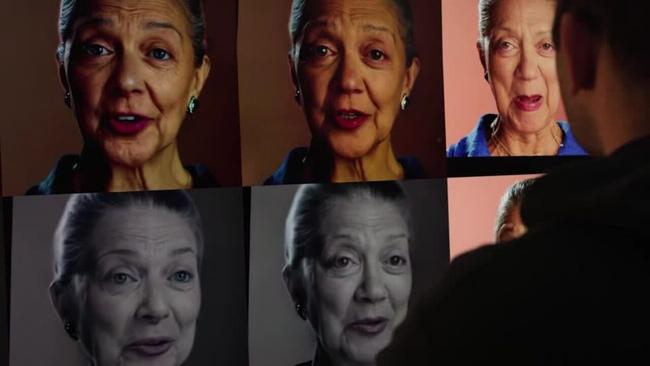AI is increasingly helping to support those living with dementia, a condition affecting 55 million people worldwide, with numbers expected to reach 139 million by 2050.
But tech giant Lenovo has partnered with a charity to show that, for all the challenges the condition brings with it, many sufferers still manage an active, fulfilling life.
The tech company linked up with community interest company Innovations in Dementia to build a custom AI, Liv, to offer support for dementia patients.
“Often when people are first diagnosed with dementia, they feel like their life is over,” Innovations director Steve Milton tells TI.
“But we wanted to help people with dementia to view their future rather differently from a future that is filled with nothing but despair, decay and decline.”
The project brings together eight years of work recording and capturing stories of those experiencing the impact of dementia on their lives.
“We set up Innovations in Dementia in 2007, and we are all former staffers from some of the bigger dementia charities, but what makes us different is we work directly with people with dementia, rather than with carers,” he explains.
“We want to promote a realistic but positive view of the potential to still live well with dementia.”
This, Milton adds, runs contrary to the wider narrative used to discuss the condition.
“When the opportunity to work with Lenovo came up, we saw it as a chance to link our perspective into something that can offer real support to people facing their diagnosis for the first time.”
Alzheimer’s Intelligence
Lenovo became involved as part of its mission to use technology to address some of the biggest societal issues we face today, and to increase inclusiveness through innovation.
We are on a mission to explore how AI can be used for good among under-represented communities,” says Doug Fisher, Lenovo’s SVP and chief security and AI officer.

Doug Fisher, Lenovo’s SVP and chief security and AI officer
He adds that their goal is to understand “what would happen if those who typically don’t have a seat at the table in the broader technology conversations finally had a voice.”
Fisher also explained that their Alzheimer’s Intelligence project was inspired by an advisory group made up of individuals living with early-stage dementia. This group identified a major gap — they “wished they’d known” more when they were first diagnosed. Lenovo hopes to use technology to help fill that void.
The company approached Innovations in Dementia to offer to help the charity with its Dementia Diaries project. Dementia Diaries sees volunteers diagnosed with the condition recording their experiences of living with it, either through a phone or video call, or in audio or video recordings they have made themselves.
The diaries are then transcribed and published as part of Innovations in Dementia’s Dementia Voices Programme.
One diarist, Dory – who has been living with dementia for over 11 years – explains why she got involved in the project, saying “it is really important to listen and hear other people’s stories about how they live as well as they can with dementia”.
When Lenovo first approached the charity, Milton admits there was initial hesitation about the partnership. However, it was the existing relationship between some of the charity’s diarists and technology that ultimately convinced him and his fellow directors to explore the opportunity.
“We’ve been taken by surprise over the last few years at how people with dementia have embraced technology,” he explains. This shift, he adds, has manifested in two main ways.
Firstly, Amazon’s Alexa voice assistant has become a crucial tool for many dementia patients.
As Milton explains: “People with dementia have been using Alexa for the typical tasks you’d expect, like reminders and prompts. But some have also said that having that voice can provide a sense of comfort and companionship, even if it is AI.”
Another key technology to emerge, especially during the pandemic, was Zoom and other video calling tools.
“Prior to the lockdown, there was a lot of suspicion about video calling,” Milton says.
“The people we work with were afraid it might replace real human contact. But it has revolutionised the way we interact with people with dementia, and also how people with dementia connect with each other.”
Lenovo’s aim was to work directly with people with dementia, rather than just build on the data that Innovations had gathered through its Diaries.
A bespoke AI, designed by the community
Then the idea of creating an AI to help people with the condition emerged.
Lenovo’s Fisher emphasises that now is the ideal time to explore innovative ways to harness AI and smarter technologies.
“With huge advances in AI,” he says, “now is the time to explore and pilot creative new ways to use technology like AI thoughtfully and responsibly, for the greater good.”
Fisher highlights the importance of reimagining a future where technology is both for and from everyone — ensuring all voices are heard in shaping the most transformative technology of our time.
At first, there were understandable concerns about the risks of using AI tools with vulnerable groups. However, Milton was encouraged by Lenovo’s commitment to involving people with dementia in the development process.
“Our pitch to the people we work with was, ‘We know you have concerns,’” Milton explains. “But we want to involve you in shaping what the technology looks like and how it responds to people.”
Rather than relying solely on existing data, the project incorporated insights from individuals living with dementia, gathered through focus groups and personal discussions. “We were really impressed with how Lenovo handled that,” Milton adds.
LIV long and prosper
Together, Lenovo and Innovations in Dementia built ‘Alzheimer’s Intelligence’, an AI powered by the experiences of people with dementia, and its photorealistic 3D avatar.
The avatar, known as Liv, was designed using a composite of images from 10 individuals living with dementia.
To build the large language model (LLM) that powers Liv’s advice, developers used over 3,000 audio and video recordings.
These recordings captured the experiences of people with dementia, including contributions from the Dementia Diaries project by Innovations in Dementia and insights gathered through detailed panel interviews.
There was some debate over the term “companion” to describe Liv. Milton initially resisted using the word, feeling it implied a level of user dependency that terms like AI tool or assistant did not. The latter, he believed, better emphasised that people with dementia remain in control.
For Lenovo, getting Liv right was crucial. The company developed a large language model using available datasets, panel interviews, and guidance from various experts.
Contributors included Lenovo’s Product Diversity Office, Innovations in Dementia, and Dr David Llewellyn, a dementia specialist from the University of Exeter.
The development process took about three months. “We worked hard to ensure the avatar represented the reality of who is most likely to be living with dementia,” recalls Fisher.
With two-thirds of global dementia cases affecting women and ethnic minorities being disproportionately impacted, the team aimed to create a composite that accurately reflects those affected.
How haptic tech is transforming football matchdays for deaf fans
After Liv was launched, Milton was surprised to learn that many people with dementia were more open to using AI than expected — not just in a closed system like Liv, but across multiple levels.
Ensuring the technology was reliable was a key concern for both Milton and Lenovo. Before giving people access to Liv, which offers advice about living with dementia, they worked to make the system “bulletproof.”

LIV AI
“For people with dementia, if the technology doesn’t work the first time, that’s it — they’re done,” Milton explains.
Feedback from users has been “overwhelmingly positive,” with many describing Liv as “really helpful.”
Milton acknowledges there’s still work to do, given the complexity of the subject, but overall, the response has been encouraging.
“It’s not a replacement for human support,” he says, “but Liv is available 24/7 to answer questions, offer guidance, and provide a sense of hope — especially for those newly diagnosed. It also helps raise awareness.”
Lenovo shared feedback from one of its focus groups about Liv. Gail Gregory, a participant, emphasised the value of involving real people in the avatar’s creation.
“It’s so important to have real people involved,” she said. “People with dementia are the experts — we’re the ones living with it. You can’t just grab things from a textbook; it must be real.
“The more realistic it is, the more relatable it becomes. I think it will be a very useful tool, especially for people living alone who have no one to ask.”
Since its launch, the project has gained attention from the World Economic Forum, which featured it on their social channels.
Other ‘AI for Access’ projects
Meanwhile, Liv is undergoing further testing in a closed environment with the DEEP network — a UK-based group of people living with dementia. Lenovo is also exploring additional partnerships.
Liv is one of several AI projects Lenovo is developing to support people with disabilities or life-changing conditions.
The company is also collaborating with the Scott Morgan Trust to create alternative communication tools for individuals with ALS, a nervous system disease that affects speech.
According to Fisher, this work aligns with Lenovo’s vision to build “smarter AI for all.”
“With rapid advances in AI, we must harness this technology purposefully and responsibly for communities that are often overlooked,” he says.
Fisher emphasises the importance of giving everyone a voice in innovation.
“Now is the time to explore and pilot creative new ways to use AI thoughtfully and responsibly, for the greater good,” he concludes.
“It’s about reimagining a future where technology is for — and from — all, ensuring everyone has a say in shaping the most transformative technology of our generation.”


